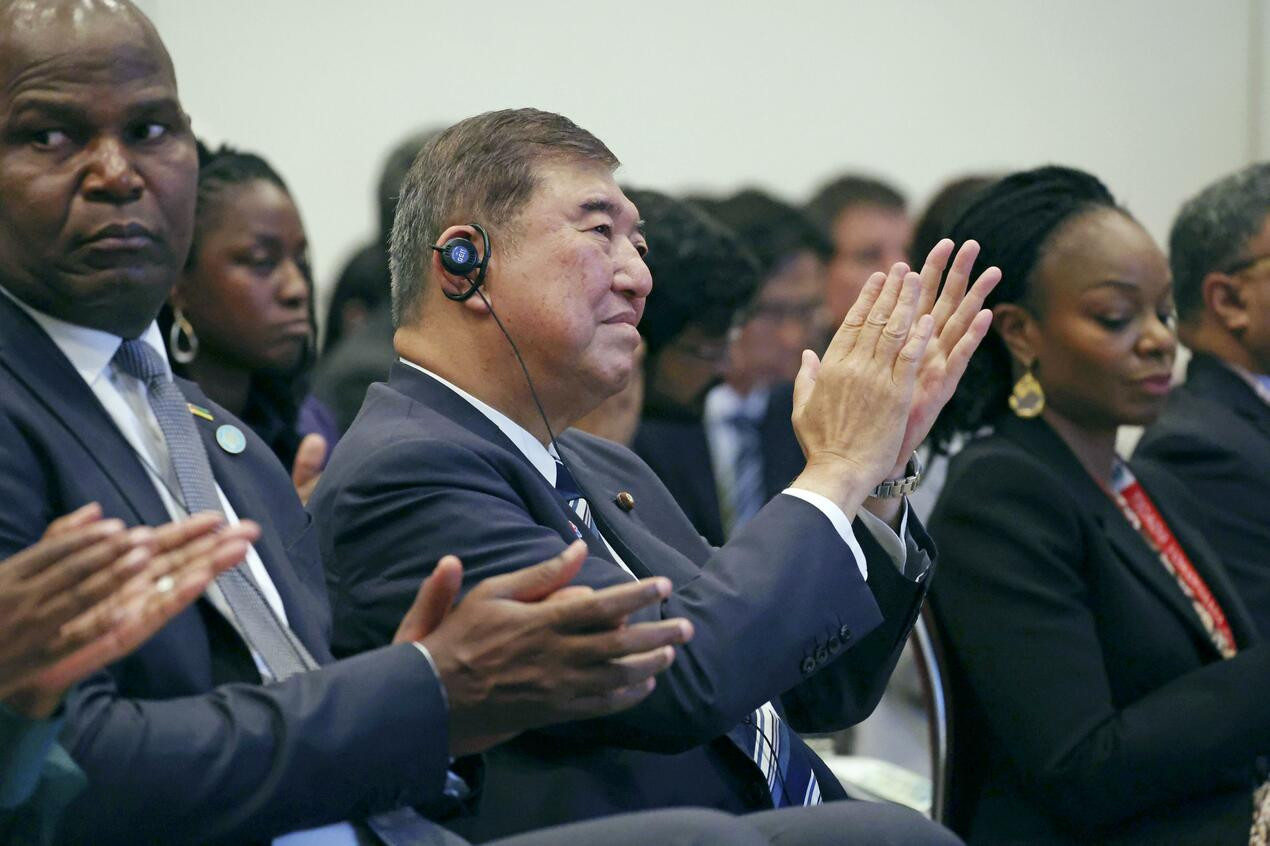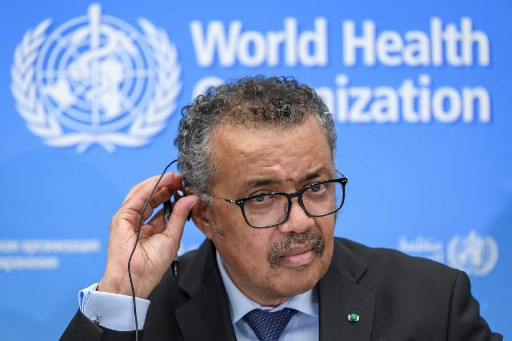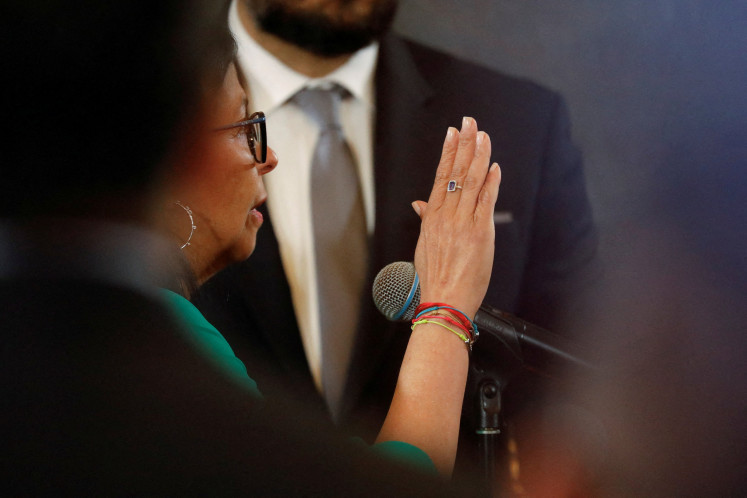Popular Reads
Top Results
Can't find what you're looking for?
View all search resultsPopular Reads
Top Results
Can't find what you're looking for?
View all search resultsJapan PM proposes economic zone initiative for Africa
Change text size
Gift Premium Articles
to Anyone
J
apanese Prime Minister Shigeru Ishiba proposed an "economic zone" encompassing the Indian Ocean region and Africa during a major aid conference for African nations on Wednesday, seeking to tap into the economic potential of a continent where China is increasing its clout.
In a speech to open the three-day Tokyo International Conference on African Development, the ninth of its kind, Ishiba pledged to cultivate 30,000 artificial intelligence experts in Africa over the next three years and announced the launch of a framework to be joined by governments, industries and academia to promote free trade in the region.
"We will strengthen private-sector-driven investment through collaboration between the government and business circles," Ishiba said, while vowing to offer Japan's expertise on digital and other issues to "co-create solution to challenges" African nations are facing.
Noting that further growth can be achieved through means such as enhancing connections inside and beyond regions, Ishiba said he will launch the "Economic Region Initiative of Indian Ocean-Africa" that will "contribute to Africa's integration and industrial development."
Under the plan, Japanese firms that already have footholds in India and the Middle East will work together with local governments and firms to expand trade and investment in Africa, according to Japan's Foreign Ministry.
Ishiba also said Japan backs the concept of an "African Continental Free Trade Area," which aims to boost the region's competitiveness by removing tariffs and standardizing rules within the bloc, and plans to promote efforts to improve logistics networks for more resilient critical mineral supply chains.
To push the region's sustainable development by helping restore fiscal health, Tokyo will extend loans of up to $5.5 billion in coordination with the African Development Bank, Ishiba added.
At past TICAD meetings, Japanese leaders referred to specific figures showing the whole size of Japan's fund injection for Africa, including loans, but Ishiba did not mention the total sum for the set of measures he announced Wednesday.
Leaders and representatives from about 50 African nations and officials from international organizations are taking part in the event in the port city of Yokohama, near Tokyo, according to a Japanese government official.
Discussions will center on three agendas: peace and stability, economic issues, and social issues such as health, climate change and youth exchanges. The release of the "Yokohama Declaration" is expected on the final day.
With its population expected to grow to about 2.5 billion by 2050 from 1.5 billion now, Africa has drawn global attention as a business destination but has also struggled to develop industries and create jobs vital for social stability.
The continent has also a bigger voice in the international community, as represented by the African Union's accession to the Group of 20 major economies in 2023.
According to government sources, Japan plans to open AI and data science courses at higher education institutions in Africa with the cooperation of leading Japanese AI expert Yutaka Matsuo, a professor at the University of Tokyo's Graduate School of Engineering.
The courses will be offered at a few dozen universities in Kenya, Uganda and other countries, with a focus on manufacturing, agriculture and logistics, the sources added.
On human resource development other than the AI talent program, Japan will nurture 300,000 people, including 35,000 in the health and medical fields, in the following three years, Ishiba said.
TICAD is a Japan-hosted international aid conference that dates back to 1993 and was last held in Tunisia in 2022. China has also been holding a forum on African cooperation since 2000 and has been increasing involvement in the resource-rich continent, including through its Belt and Road infrastructure projects.
The event is also taking place as U.S. President Donald Trump's tariffs as well as his policy to dismantle America's foreign-aid program casts a shadow over the African economy.
On the fringes of the international conference, Ishiba began to hold a series of bilateral summits with his African counterparts.
During talks with Kenyan President Samoei Ruto, Ishiba expressed his hope to further step up bilateral cooperation with Kenya, as a "like-minded country sharing values and principles," to realize a "free and open Indo-Pacific," the Japanese ministry said.










